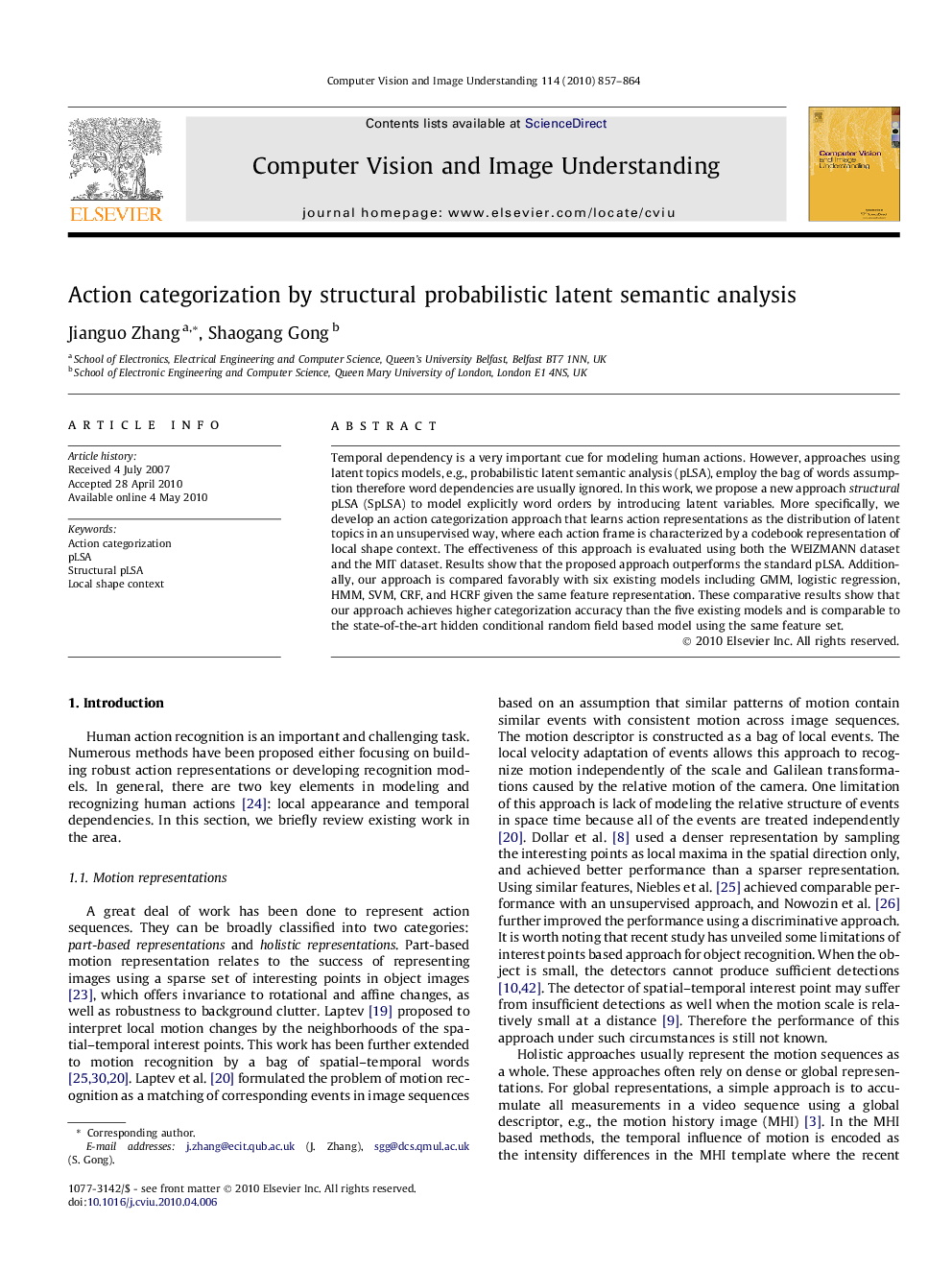| Article ID | Journal | Published Year | Pages | File Type |
|---|---|---|---|---|
| 527892 | Computer Vision and Image Understanding | 2010 | 8 Pages |
Temporal dependency is a very important cue for modeling human actions. However, approaches using latent topics models, e.g., probabilistic latent semantic analysis (pLSA), employ the bag of words assumption therefore word dependencies are usually ignored. In this work, we propose a new approach structural pLSA (SpLSA) to model explicitly word orders by introducing latent variables. More specifically, we develop an action categorization approach that learns action representations as the distribution of latent topics in an unsupervised way, where each action frame is characterized by a codebook representation of local shape context. The effectiveness of this approach is evaluated using both the WEIZMANN dataset and the MIT dataset. Results show that the proposed approach outperforms the standard pLSA. Additionally, our approach is compared favorably with six existing models including GMM, logistic regression, HMM, SVM, CRF, and HCRF given the same feature representation. These comparative results show that our approach achieves higher categorization accuracy than the five existing models and is comparable to the state-of-the-art hidden conditional random field based model using the same feature set.
